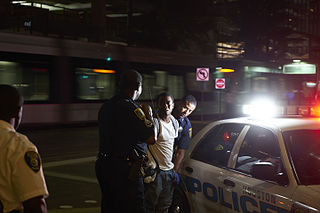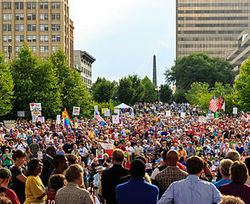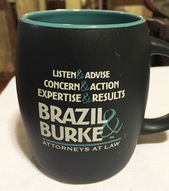 Asheville criminal defense attorney Meghann K. Burke
Asheville criminal defense attorney Meghann K. Burke Unfortunately, many people find themselves handcuffed and detained in jail when they participate in protests. You may have found yourself ticketed for disorderly conduct and hoping your disorderly conduct charge could be dropped. Like other Asheville residents, you may find yourself questioning how you could be arrested for exercising your Constitutional rights.
Why do people get arrested at protests? How can police arrest protestors?

Protesters are not arrested for “protesting.” For example, in August 2016, eight people were arrested for disorderly conduct when they protested the Asheville police shooting of a black man. If you are arrested at a protest, it will probably be for misdemeanor offenses like this, such as:
- First- or second-degree trespass
- Failure to disperse on command
- Impeding traffic
- Disorderly conduct
- Rioting
- Inciting to riot
- Unlawful assembly
How not to get arrested at a protest
 A protest in downtown Asheville
A protest in downtown Asheville Some things to keep in mind if you want to avoid getting arrested at a protest:
- Keep back from entrances and exits of buildings
- Do not block hallways or corridors if you are protesting inside a building
- Do not damage any property. This includes acts like marking or defacing buildings.
- Do not interfere with the rights or safety of other people
- Avoid “rude or riotous” speech, like swearing or insults
- Do not make threats or fight
Keeping to a traditional public forum such as a public sidewalk or park is another way to avoid arrest. Protests in these areas do not require a permit, whereas protests in streets do. Police can and often will remove protesters from government buildings.

